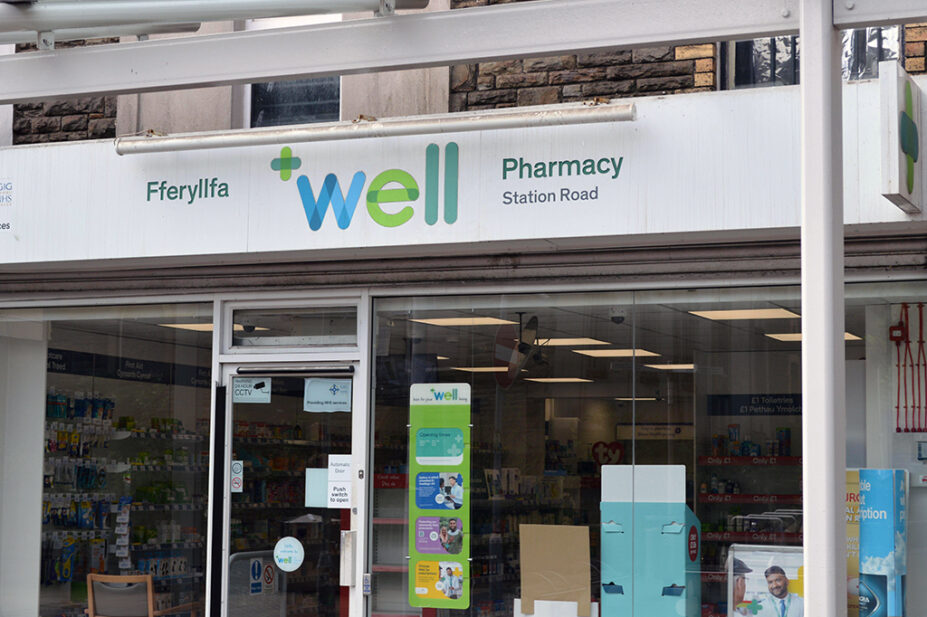
Mark Hathaway / Alamy Stock Photo
The government has confirmed that community pharmacies in Wales will receive a 6% increase in funding as part of the ‘Community pharmacy contractual framework’ (CPCF) for 2024/2025.
In an announcement published on 20 December 2024, Jeremy Miles, cabinet secretary for health and social care, said that the government had reached an agreement with the NHS and Community Pharmacy Wales (CPW) “on an increase of 6% in the fees and allowances payable to the sector and the distribution of the additional investment”.
“The £9.9m increase in the CPCF will take total CPCF funding to £175m a year, representing a 24% increase in funding since 2017,” he added.
Miles said that the funding would help with “immediate pressures” and “maintain momentum on our longer-term ambitions for reform, which are set out in ‘Presgripsiwn Newydd — a new prescription‘”.
In his statement, Miles also said that the government would continue to invest in integrating pharmacies in primary care clusters; developing the skills and scope of practice of the wider community pharmacy workforce — including pharmacy technicians — and the Choose Pharmacy IT system.
The announcement follows a previous commitment to a 6% uplift, made in September 2024, across primary care.
A spokesperson for CPW said that when the original commitment was made, CPW welcomed the announcement, saying that it had come at “a critical time for community pharmacies across Wales, which have faced significant financial challenges over an extended period of time”.
“However, CPW was clear that the additional funding — whilst going some way to meeting the additional costs associated with recent increases in the national minimum wage — made no provision to cover other cost increases, such as maintaining pay differentials, increased energy and utility bills, increased NNDR [national non-domestic rates] charges and significant increases in interest charges.
“For those reasons, CPW made clear that it would want to work with [the] Welsh government and NHS Wales to make sure that the increased funding is allocated in a way that will enable us to reward and support our pharmacy teams, whilst ensuring that the community pharmacy network remains sustainable, viable and capable of providing local communities with the highest standards of pharmaceutical care,” they added.
However, the spokesperson said that CPW had, “along with other primary care contractors in Wales, signalled serious concerns about the implications of the UK government’s October budget announcements, in particular the proposals relating to changes in national insurance and the proposed further increase in the national minimum wage”.
They added: “Action needs to be taken now to avoid contractors being forced to make business decisions in advance of 1 April 2025, which will undoubtedly compromise their ability to continue to offer the range of clinical services and support that is currently available.
“CPW is clear that failure to do so will have real consequences for local communities as it could mean independent contractors closing services, returning contracts and patients struggling to access needed care.”
In November 2024, a group of pharmacy representative bodies in England wrote a letter to health secretary Wes Streeting, warning that the 2024 autumn budget had the potential to cost community pharmacies £200m per year in unplanned expenses.
Under the autumn budget, set by the UK government on 1 November 2024, employer ‘class 1’ national insurance contribution rates will rise from 13.8% to 15.0% in April 2025, while the national living wage will increase from £11.44 to £12.21 per hour.
In the letter, the bodies called for the government to shield pharmacies from the costs, warning that the increases could push many contractors to insolvency.
In December 2024, Streeting announced that negotiations for the CPCF in England would begin in the new year.


